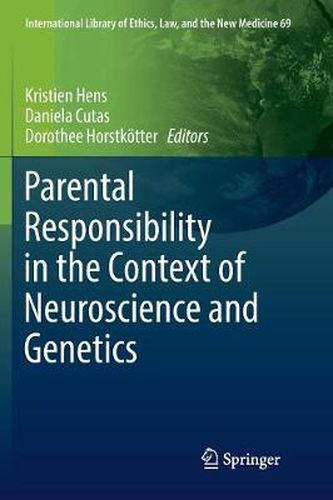Readings Newsletter
Become a Readings Member to make your shopping experience even easier.
Sign in or sign up for free!
You’re not far away from qualifying for FREE standard shipping within Australia
You’ve qualified for FREE standard shipping within Australia
The cart is loading…






This title is printed to order. This book may have been self-published. If so, we cannot guarantee the quality of the content. In the main most books will have gone through the editing process however some may not. We therefore suggest that you be aware of this before ordering this book. If in doubt check either the author or publisher’s details as we are unable to accept any returns unless they are faulty. Please contact us if you have any questions.
Should parents aim to make their children as normal as possible to increase their chances to fit in ? Are neurological and mental health conditions a part of children’s identity and if so, should parents aim to remove or treat these? Should they aim to instill self-control in their children? Should prospective parents take steps to insure that, of all the children they could have, they choose the ones with the best likely start in life?
This volume explores all of these questions and more. Against the background of recent findings and expected advances in neuroscience and genetics, the extent and limits of parental responsibility are increasingly unclear. Awareness of the effects of parental choices on children’s wellbeing, as well as evolving norms about the moral status of children, have further increased expectations from (prospective) parents to take up and act on their changing responsibilities.
The contributors discuss conceptual issues such as the meaning and sources of moral responsibility, normality, treatment, and identity. They also explore more practical issues such as how responsibility for children is practiced in Yoruba culture in Nigeria or how parents and health professionals in Belgium perceive the dilemmas generated by prenatal diagnosis.
$9.00 standard shipping within Australia
FREE standard shipping within Australia for orders over $100.00
Express & International shipping calculated at checkout
This title is printed to order. This book may have been self-published. If so, we cannot guarantee the quality of the content. In the main most books will have gone through the editing process however some may not. We therefore suggest that you be aware of this before ordering this book. If in doubt check either the author or publisher’s details as we are unable to accept any returns unless they are faulty. Please contact us if you have any questions.
Should parents aim to make their children as normal as possible to increase their chances to fit in ? Are neurological and mental health conditions a part of children’s identity and if so, should parents aim to remove or treat these? Should they aim to instill self-control in their children? Should prospective parents take steps to insure that, of all the children they could have, they choose the ones with the best likely start in life?
This volume explores all of these questions and more. Against the background of recent findings and expected advances in neuroscience and genetics, the extent and limits of parental responsibility are increasingly unclear. Awareness of the effects of parental choices on children’s wellbeing, as well as evolving norms about the moral status of children, have further increased expectations from (prospective) parents to take up and act on their changing responsibilities.
The contributors discuss conceptual issues such as the meaning and sources of moral responsibility, normality, treatment, and identity. They also explore more practical issues such as how responsibility for children is practiced in Yoruba culture in Nigeria or how parents and health professionals in Belgium perceive the dilemmas generated by prenatal diagnosis.